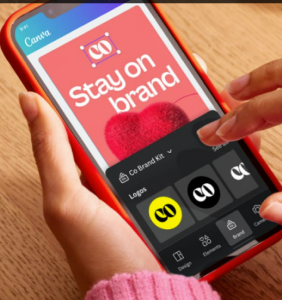What do consumers really think about influencer marketing?
Influencer marketing has been an integral part of a communication professional’s toolkit for a while now. Many companies have been known to attempt to increase brand trust and sales by getting people with a significant social media following (known as influencers) to promote a particular product or service. Businesses stand in good stead to make…
Influencer marketing has been an integral part of a communication professional’s toolkit for a while now. Many companies have been known to attempt to increase brand trust and sales by getting people with a significant social media following (known as influencers) to promote a particular product or service.
Businesses stand in good stead to make a lot of money from influencer marketing. Instagram’s influencer market alone is worth $1 billion, according to Mediakix, with Facebook, Twitter and Snapchat also prominent platforms for well-known people to promote products. The Influencer Marketing Hub reports that companies are receiving $7.65 on average for each $1 they spend on influencer marketing.
However, new research from Prizeology indicates that the public may be becoming jaded with the communication phenomenon – begging the question, how can brands continue to use it while still maintaing consumer trust?
No rules and regulations?
Prizeology surveyed 2,000 people across the UK to find out their thoughts on influencer marketing.
Despite this type of communication medium being highly regulated by the Advertising Standards Authority (ASA), nearly three quarters (71 per cent) of respondents said they believed there were no rules around the use of influencers. A further 61 per cent believed influencers don’t have to disclose that they have been paid to talk about a product.
Australia has similar laws to the UK with respect to ensuring influencers disclose that they are being paid to promote a brand. The Australian Competition and Consumer Commission stipulates that brands are safe as long as parties involved disclose the commercial relationship.
Hashtags are no longer enough
However, the survey clearly indicates that consumers aren’t noticing influencers’ disclosures. This is partly because many influencers only indicate they are being paid to promote something through certain hashtags, for example, #ad or #paidpartnership. Often these hashtags are buried among a whole host of others so that it’s hard to distinguish them from more product-centric hashtags.
This is reflected in the survey results – nearly one in two (49 per cent) of consumers aren’t aware of the hashtags and language that is used to indicate a commercial relationship.
Don’t despair
Don’t go firing all your influencers just yet. The survey also indicated that influencer marketing can improve brand trust if done effectively, with 60 per cent of respondents claiming their perception of a brand improves when it is transparent about its use of product promotions.
Influencer marketing can therefore still be a valuable tool. It just needs to be done correctly and with obvious disclosure of the commercial nature of the relationship.
Influencers must go beyond simply using a hashtag to indicate a paid promotion, and instead clearly write it in the post’s main body of text. This will confirm a consumer’s perception that an influencer is to be trusted, and this will then transfer to the brand by association.
Instagram has made this process easy by creating a branded content option, allowing influencers to clearly disclose when a post they share is part of a commercial relationships. Under their username it will say “paid partnership with…” and then the brand, making transparency easier than ever.
Influencer marketing is one of many quickly-evolving tools in the communication landscape. Visit our Insights page to find out about more.
Discover insights.
Creating messages that cut through social media, news cycles and even the humble inbox has never been easy, but, with more noise across more channels, it’s become more important than ever to create messages that stand out and land with impact. Visual communications tools are gaining traction as a way of shaping messages that hit…
Looking for greater choice in the contract options available to you? Having history and rapport with a specialist recruiter like Fraser Clapcott will open doors to opportunities you may have missed for yourself, that add value for both contractor and employer. In the current climate of uncertainty, a willingness and propensity for flexibility comes with…
If you’ve been ruminating on changing-up your comms career, now may be the ideal time to talk with your trusted recruiter about making a move. Salt & Shein Director, Lucy Newcomb, sees significant scope for motivated communicators to broaden their career horizons, and make the job of their dreams a reality, in 2023. “A rapidly…








